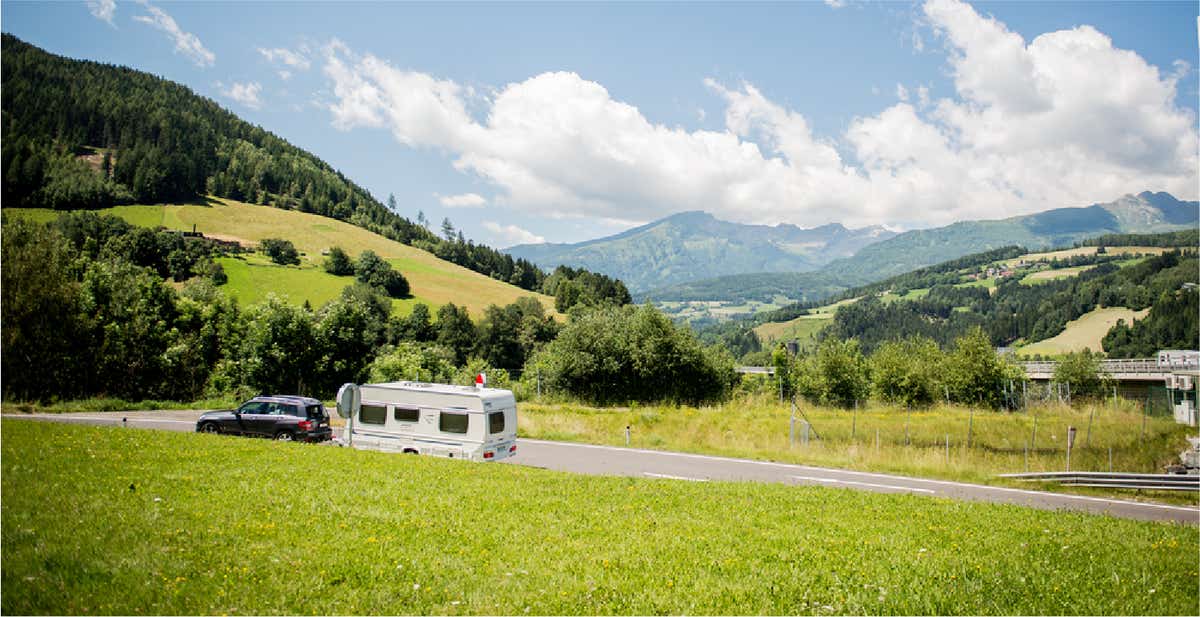In recent weeks, Autotrader reported caravan advert views are up by 18%, whilst an investigation by Car Dealer Magazine found that both motorhome dealers and manufacturers are seeing an overwhelming peak in sales and enquiries.
In addition to this, Uswitch found that Google searches around towing a caravan soared this summer, with over 26,000 entries in June and July alone.
The surge in searches reveals puzzled drivers are keen to find out how to attach a caravan to their car, the maximum weight capacity, and most importantly how to drive safely when towing a caravan.
To find out more, we asked over 1,364 UK motorists to reveal how much they really know about the topic, and how confident they feel heading out on the open road.
How do you hitch a caravan to your car?
This popular question received over 9,000 Google searches in June and July this year. From our survey, 60.10 percent revealed they would have no idea how to safely hitch a caravan to their car.
If you’re unsure, we suggest asking a professional to demonstrate how to couple a caravan to a tow vehicle. This is important for both new and experienced caravanners, because equipment can change over time. Practicing several times before you head out on a long journey is also a good idea, as hitching up your caravan is a tricky task – and safety definitely needs to come first.
You will also need to make sure your car and caravan are roadworthy with regards to their mechanical condition e.g. lights, tyres, brakes, number plates, and mirrors.
You must be able to see clearly down both sides of your caravan, and 4 metres either side, at a distance of 20 metres behind the caravan. This means you will need to fit extension towing mirrors, otherwise you could receive a £1,000 fine, three points on your licence and risk invalidating your insurance if involved in a road incident.
It’s also a legal requirement for vehicle registration plates to be visible on your caravan or trailer too again, you could be fined or face penalty points.
Do you know the weight restrictions for towing a caravan?
When it comes to the laws on towing a caravan, did you know if you obtained your licence after 1997 different rules apply? It turns out neither did 56.94 percent of the motorists we surveyed, suggesting Brits could be at risk of breaking the law and invalidating their insurance.
According to the RAC, if you passed your driving test after 1 January 1997 and have an ordinary category B (car) licence, you can drive a vehicle up to 3,500kg MAM towing a trailer of up to 750kg MAM.
You can also tow a trailer over 750kg MAM, as long as the combined weight of the trailer and towing vehicle is no more than 3,500kg. For anything heavier you need to take a category B+E driving test.
However, if you passed your driving test before January 1997, you’re generally allowed to drive a vehicle and trailer combination up to 8.25 tonnes MAM or 8,500kg, meaning you’re slightly less restricted.
If your caravan or trailer doesn’t meet the legal weight capacity, you could invalidate your insurance and receive up to six points on your licence.
Do you know the speed limits?
Questions on caravan speed limits are up by 182 percent right now, with over 5,000 drivers hitting up Google to find out how to drive safely whilst towing a trailer.
Alongside this, 51.64 percent of drivers admitted they are clueless when it comes to the speed restrictions, with female drivers (65.47 percent) more uncertain than men.
Interestingly, older drivers are less confident overall, with 57.12 percent of those over 55 revealing they don’t know the legal speed limits, in comparison to 40.23 percent of those aged 16 to 24.
As you’d expect, the speed limits whilst towing a trailer are notably lower than restrictions for other vehicles:
60mph - motorways and dual carriageways
50mph - single carriageways
30mph - built up areas
Also, whilst over half of drivers (51.45 percent) are unaware of this, when on the motorway, a car towing a caravan is not permitted to use the right-hand lane and must stay to the left where possible.
How does the weather affect your safety?
Driving in bad weather conditions can be difficult, but when towing a caravan, it can also be dangerous.
As the UK is known for having unpredictable weather, we wanted to find out how confident drivers feel when caravans are on the road.
Our survey revealed that 62.10 percent of drivers would feel unsafe towing a caravan in windy conditions. Whilst over a third (37.81 percent ) of drivers don’t feel safe driving behind or alongside a caravan on the motorway.
Google search data also supports this claim, with queries around how to tow a caravan in strong wind rising by 120 percent in the last month.
Whilst it may sound obvious, the first thing to consider during windy conditions is whether you actually think it's safe to travel.
If you’re on a staycation, many sites will let you stay another night if it's not too busy, not to mention it's a good excuse to prolong your holiday.
However, if you do believe that you can brave the gusty winds and travel forth, then it’s a good idea to tow your caravan to a less exposed location. This should be done nice and early before the winds are due to descend.
Other basic precautions include, making your caravan more wind-resistant by placing heavy items on the floor of the caravan to weigh it down, and using storm straps to pin the caravan down.
Does your insurance cover you to tow a caravan?
Before you even start planning your journey, if you’ve recently bought a caravan or motorhome you need to check that your insurance covers you.
Over half of UK motorists (53.59 percent) don’t know whether their car insurance covers them to tow a trailer, and if this applies to you it’s worth giving your provider a call.
Whilst most car insurance policies will cover your vehicle while towing a caravan, they are unlikely to cover damage to your caravan in the event of a collision. Do check, but you'll probably find that caravans are specifically excluded in the policy.
Uswitch car insurance expert, Florence Codjoe, says: “If you’re one of the many drivers thinking of renting or buying a motorhome this year, it’s important you know what level of cover your insurance offers.
“It’s also essential you’re aware of the weight restrictions, speed limits, and safety regulations before you commit to a purchase. If you fail to comply and are involved in an accident, you’re unlikely to be covered by your insurance provider and could face a fine, along with points on your licence.”
If you’re confused about the type of cover you need, our guide to understanding different types of car insurance and policy options could help steer you in the right direction. Our top 10 tips to protect your car and cut insurance premiums are also helpful if you’re looking to save money and keep your vehicle safe.

